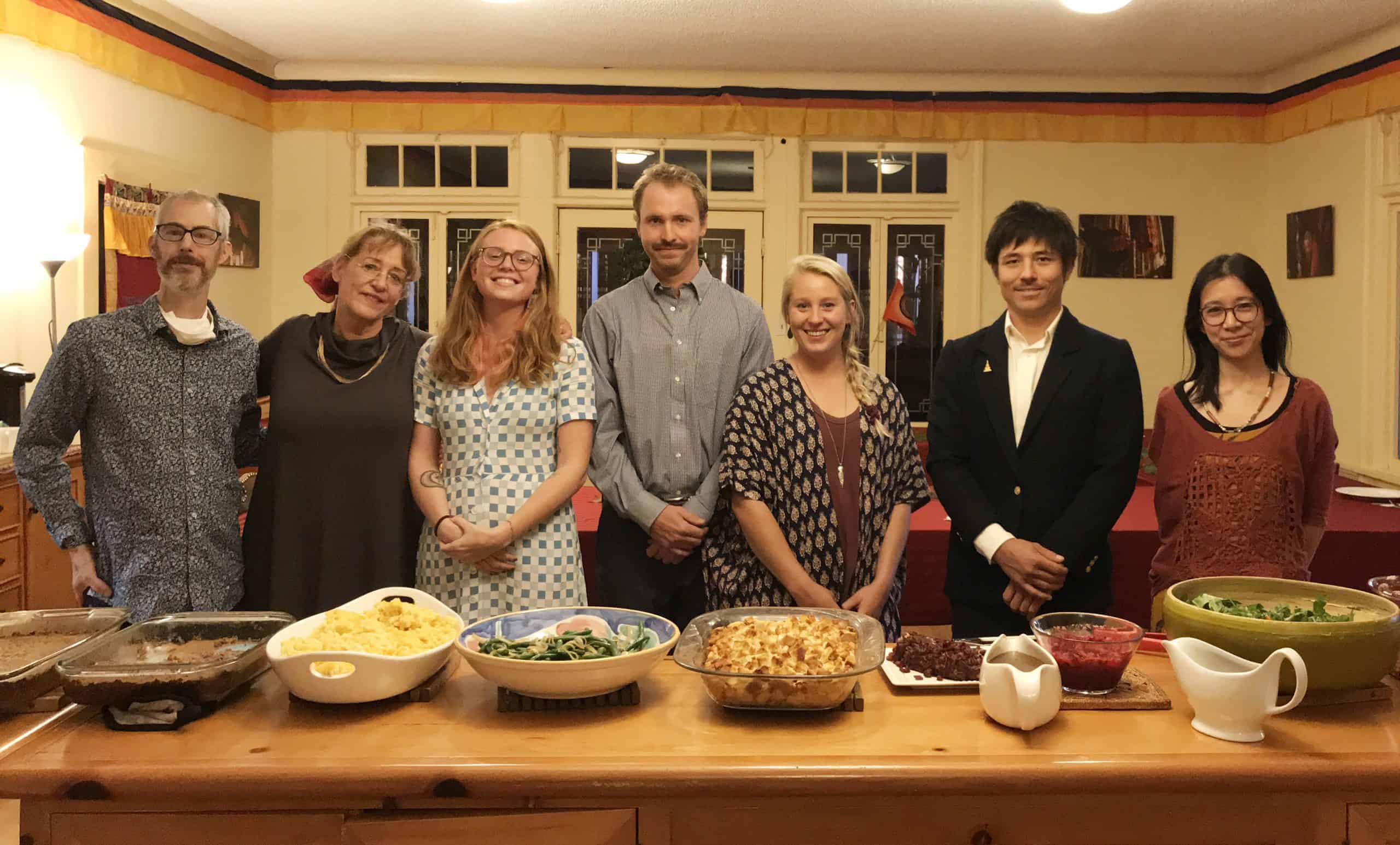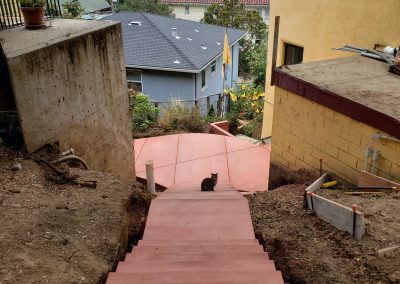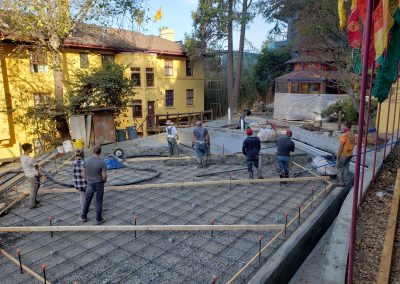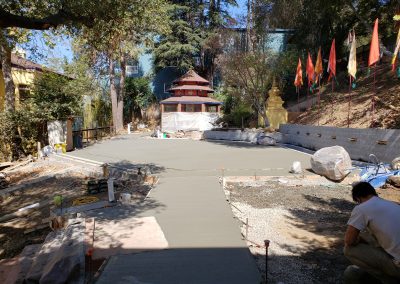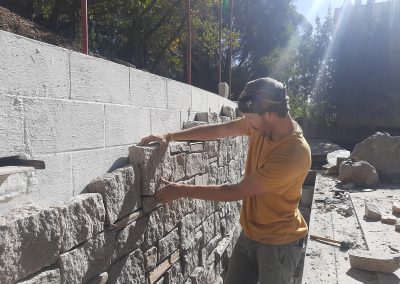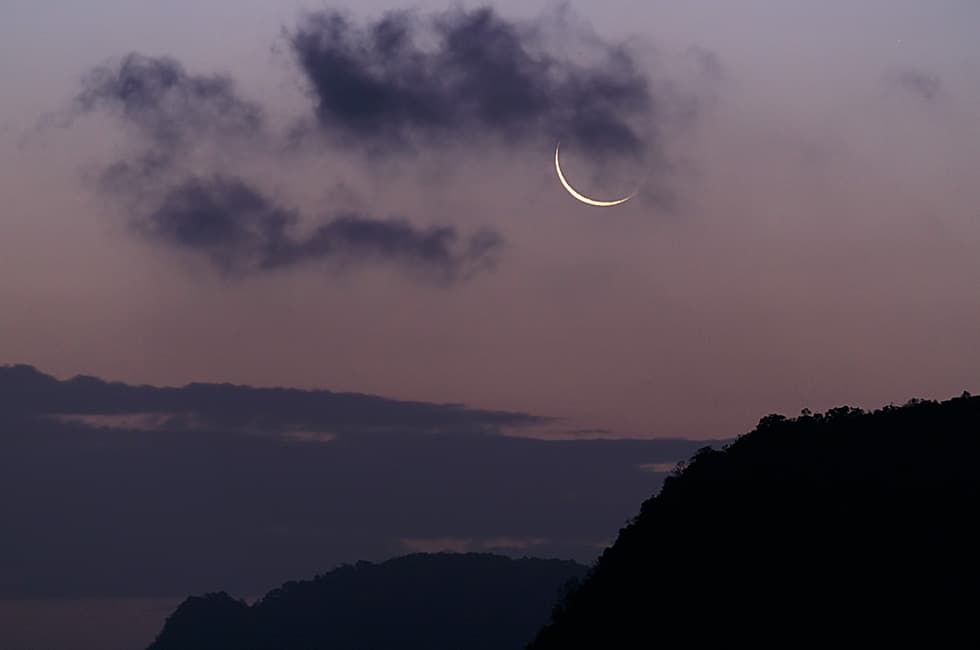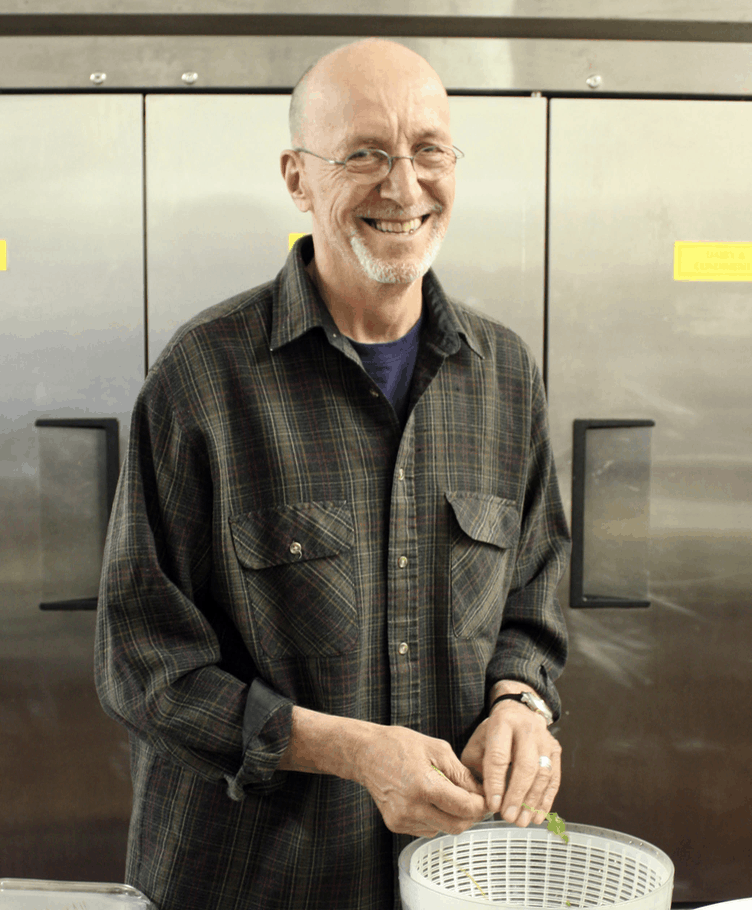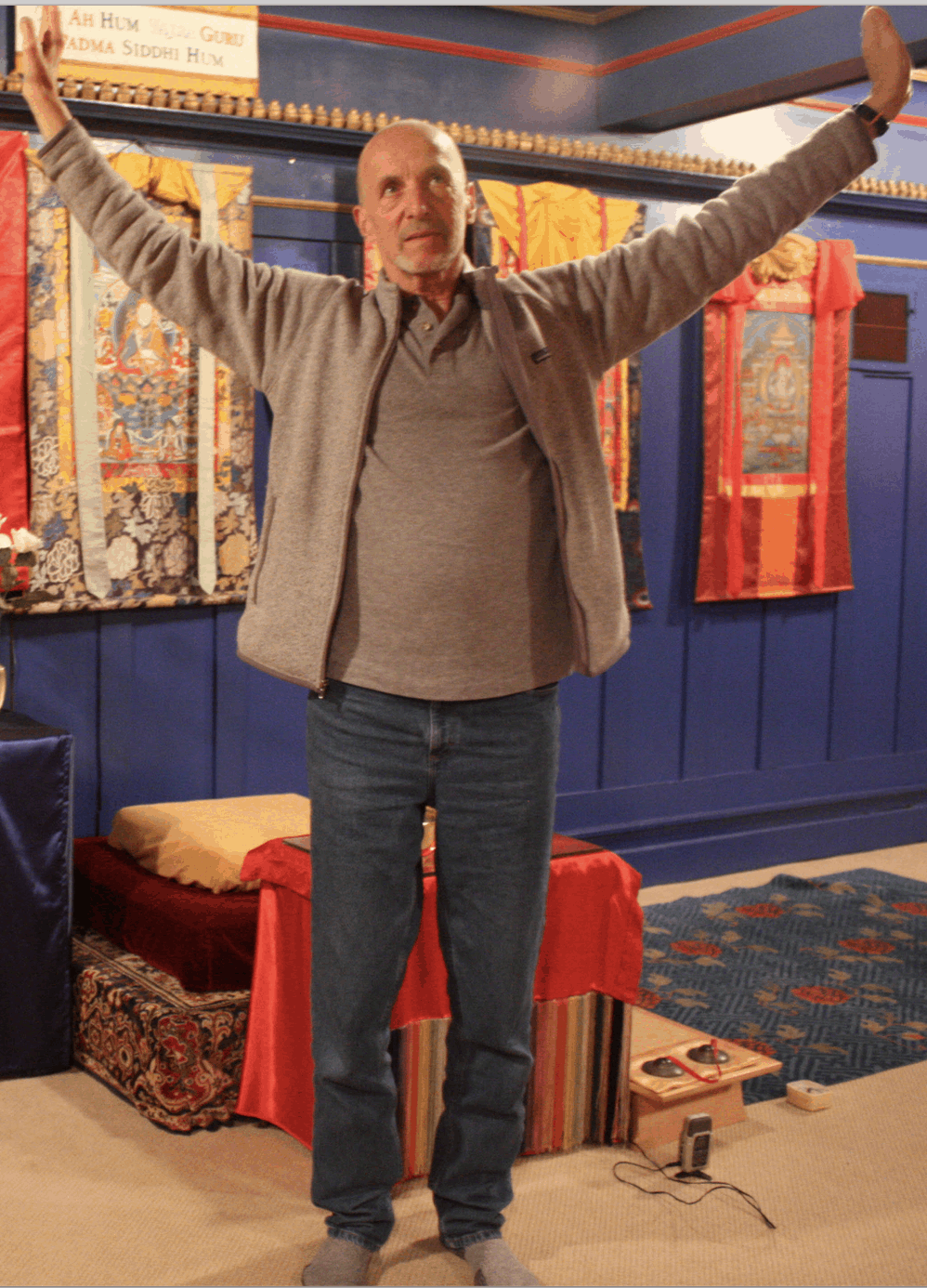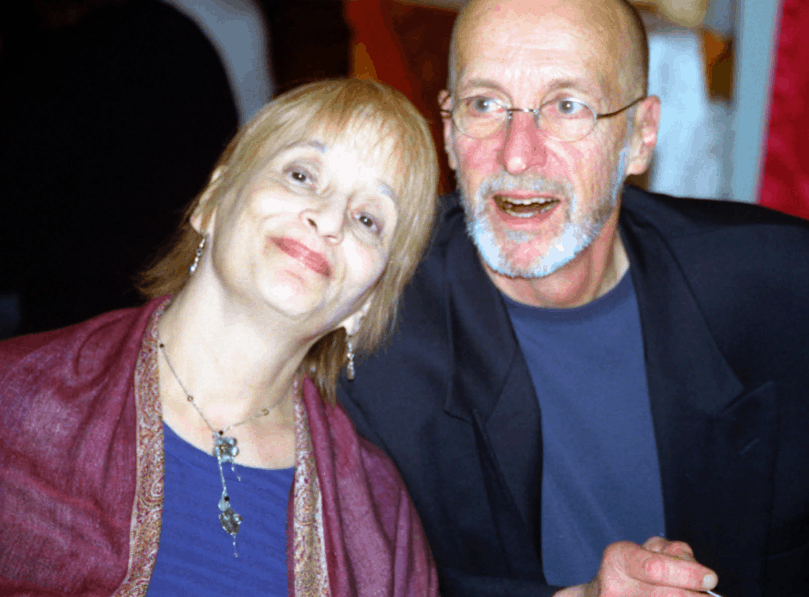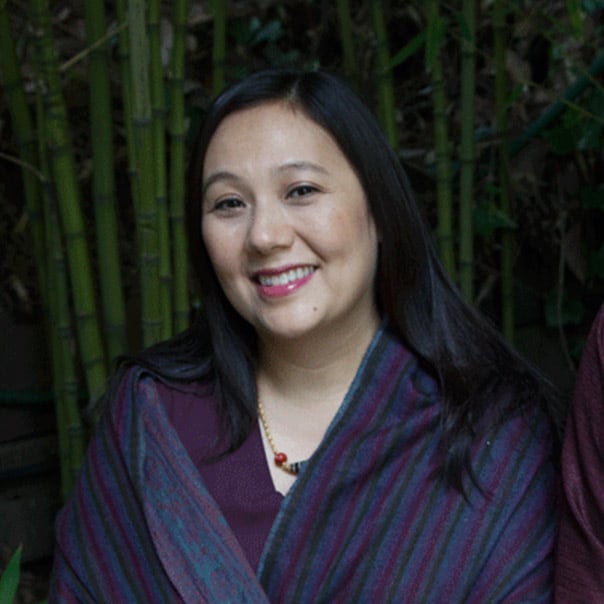Skillful Means: Work-Study as Full-Time Practice
Skillful Means: Work-Study as Full-Time Practice
For staff members who live and work on site at Nyingma Institute (NI), our focus is on work as a form of practice, a place where we can begin to see, interact, and be differently. This field of the everyday is where we train in activating intention, transforming self-limiting habits and patterns, and developing inner goodness and well-being.
Our approach is guided by rich fields of study based on Tarthang Rinpoche’s books and teachings. As students in the classes and workshops here, we gain experience with meditation, Kum Nye Tibetan yoga, awareness practices, and modes of inquiry. Our time on the cushion flows into the post-meditation practice of tending to the so-called mundane tasks of running an organization and supporting a community as a testing ground for expanding one’s ability to find fulfillment, nourishment, and meaning. We engage with mind, body, and senses on a path that is deeply personal, yet reveals a potential for awakening that is shared by all beings.
The core staff here is usually comprised of a small group of about 6 – 9 individuals, in addition to the deans. We welcome applicants who would like to see if they might be a good fit at this point in their journeys. At the time of these responses in spring 2020, “Y” was the newest, having transitioned from a renter to working full-time on projects for Nyingma Institute about a year prior; “H” is a dedicated community member who had served full-time for seven years; and “P” for thirteen years.
Why did you become interested in doing work-study at Nyingma Institute?
- Y: I was already living here plus some financial circumstances plus some job opportunities. Once I joined I started to appreciate the study aspect of it, but at first it was because of needing a job and housing.
- H: I love nature and am interested in Buddhism, so I applied for Ratna Ling, one of our sister organizations in the forest, but in the end I ended up in downtown Berkeley and later in Nyingma Institute.
- P: I graduated from college in 2006 and was looking around for what to do next with my life. Also, I had just begun meditating, liked the idea of being in a community, and tended to go for immersive experiences where you can be all in.
Describe the transition process for you of moving into the work-study lifestyle
- Y: It feels like your world becomes more focused on this area. It became a more enclosed kind of lifestyle, and that was noticeable in transition. I was living here before, though, so the transition wasn’t too difficult.
- H: This kind of lifestyle is not too different than I used to lead: You work and you study, sort of a monotonous life that suits me anyway.
- P: The location is gorgeous, and the people here are kind and genuine, so that part was great, although I had to adjust my expectations about what it means to live in a spiritual community. (I think we all have to after the honeymoon period of being here, but in different ways depending on our own concepts and assumptions.) As a student, I didn’t have many belongings so moving in was straightforward. Getting used to a six-day work week was an adjustment in the beginning, but now it seems very normal. Being on a small stipend also meant that I had to watch my budget differently, but everything major is pretty much provided: room, meals, so it’s doable. It also motivated me to get creative, for instance learning to cut my own hair, and to question what I really need, rather than wanting something out of habit.
What jobs/roles do you perform as part of your work?
- Y: I work on the garden project [with construction], but also help out with the plumbing, fixing things, and making sure all the doors are locked. Mostly maintenance and whatever small building projects might come up.
- H: Whatever needs to be done and I have the ability to complete it, I take it and make it a fun project for me. I like to be challenged and feel it is very rewarding when I acquire some knowledge/skill and perform appropriately. I did front desk job, lead people for work study, cleaning rooms, woodworking, cooking, ironing, translating, babysitting, bookkeeping, etc.
- P: This has fluctuated greatly over the years. Currently I help the deans with projects, and also with the day-to-day processes of running the organization somewhat on an as-needed basis. As we are here for a while, we tend to fall into specific roles that suit our abilities and care for the needs of the organization, while still wearing many hats.
What classes or programs are you taking?
- Y: The classes I have taken are Transforming Negative Emotions, In the Words of Buddha, and a meditation class.
- H: Meditation, Kum Nye, Path of Liberation, Reading Sutras, Nyingma Psychology, Tibetan Chanting, Ngondro, and Tibetan Language over the years.
- P: I’m currently learning about Vajrasattva practice in Lama Palzang’s meditation class, taking the Kum Nye Teacher Training program, and also I’m in the Sutra studies class with Pema, Hugh, and Richard.
Describe a typical day at NI
- Y: Make coffee, meditate, then at 9 AM the garden crew discusses what to do for the day, work, lunch, work, dinner, more work sometimes after if I’m feeling inspired.
- H: Morning Kum Nye, Morning Meditation, day at work (mostly bookkeeping these days), communal prayer & chanting followed by evening classes
- P: Morning practice, set intention for the day, work-practice, lunch, do the dishes, work-practice, dedicate merit, dinner, then class or back for a little more work or practice. It’s simple, but can be very full! Same schedule Mondays through Saturdays, rest on Sundays.
What do you find fulfilling about your work? About your classes?
- Y: I can immediately see the changes I’ve made, which is the first level of gratifying. I like using my body, getting stronger. The garden hopefully one day will benefit many people. The classes have helped me with identifying my thoughts and emotions.
- H: It is practice at work the whole day: this is the best part of my living here, and also being with like-minded people.
- P: It’s not the work itself necessarily, but the entire system or vision that it all fits together with. Work itself can be explored on different levels. It also provides energy, focus, and is a crucible for observing mind and challenging our own patterns. Classes provide a different kind of space, and especially in the beginning they provide crucial clues, orientation, background, and tools for how to go about the rest of your day. The work and classes are all part of what’s given to us, a means of reflection and exploration through which we get to know our patterns, habits, and mind.
Describe what it is like for you to live in a communal setting
- Y: Not lonely. I was worried at first about so many people being around, but I have grown into it. It’s been good for me to have to interact with people. I like being able to do things that are good for everyone. I like it when we can all come together and do stuff together. I think it’s good. I like how the tasks are delegated.
- H: I am surrounded by like-minded and trustworthy people; I can talk to them and they may shed dharma lights on my situation at the moment. Beside my co-workers, there are also many experienced teachers/students who can encourage me by their examples.
- P: It’s like training in the art of relating to others and letting go of the little things. Also, seeing how your own patterns get mirrored in how you perceive the environment and situations, noticing the ripples of emotionality, and observing the cause and effect of your actions.
Have you noticed any self-improvement from your experience here? If so, what specifically?
- Y: I have noticed that my communication skills have improved. I’ve also become more organized and attentive to how I leave communal spaces.
- H: Honestly speaking, I feel that a good potential had been seeded in me before I arrived here; I used to be a very conscientious learner for whatever I did and tried hard to ace it. The Nyingma community expects you to do your best in whatever you do and equally supports you to accomplish it. Specifically saying, well, for example, I was not a lover of cooking especially for many people, but I managed to do it and brought to the table the food making people wow.
- P: The biggest shift for me was probably early on, seeing that what was described in the books and brought to life in classes felt authentic, and that the practices were very simple yet effective. I could prove it to myself in my experience, whether these things worked. That being said, seeing that it works once is different from being able to live in that space more and more. It’s a process, not a switch that gets flipped. To sum it up, I’m probably more confident, balanced, and grounded.
Describe how your volunteer work benefits others
- Y: If we finish this garden people will be able to use it and practice in it. One day I’d like to teach a class or be able to give back in other ways too. Sustaining the place is also important.
- H: Through many classes and practices and through many examples of people here, I learn the importance of the Bodhisattva’s vow working only for others; to live here and help this place run smoothly is, I believe, one of the many ways to benefit others. I am happy that I am a part of that big vision.
- P: Working here, we’re part of a much larger group of organizations or projects than is immediately apparent. These organizations are connected to the Nyingma Tibetan Buddhist tradition that flows through Tarthang Tulku Rinpoche, and that we are helping extend. Our work is connected to cultural preservation projects in Asia, as well as the coming of these teachings on how mind works into our setting here. The teachings are precious, in that they point at the heart of experience, how suffering works (or doesn’t work), and toward being an altruistic, compassionate, and wiser being. If we can keep all this available and alive, it’s a thread of wisdom that has the potential for great benefit.
How would you describe what NI does?
- Y: Spreading the teachings of the dharma is important for anyone in general. It keeps the tradition alive. We support the preservation of Tibet’s dharma tradition. Before COVID, people could come here and practice and seek refuge here.
- H: Nyingma Institute lives the Tibetan Buddhism and its Bodhisattva vision in the world by educating and showing examples. NI has classes and workshops for Buddhist Study, Buddhist Psychology, Meditation, Kum Nye Tibetan Yoga, Tibetan Prayers and Mantra Chanting, Tibetan Language, Tibetan Buddhist art, and Sunday Morning Kum Nye and Evening Free Dharma Talk and Monthly Women’s Meditation Gathering and so forth. If you are interested in starting study groups and practice groups, you may find like-minded people easily.
- P: Nyingma Institute has historically been a gateway to our organizations, and where many long-term volunteers first enter. We offer programs to the general public, including classes, workshops, and retreats on many topics, some of which focus on well-being and being human in a more general way, while others approach mind through traditional Buddhist practices. On a day to day basis, we do all the things that any non-profit, educational center would need to do. We clean bathrooms, repair the buildings and grounds, garden, cook, do the dishes, do bookkeeping, deal with IT problems, host retreatants, run errands, get supplies, answer questions from students, respond to faculty, file legal and tax related forms, email students about upcoming programs, post on social media. We also live, work, and practice together with the intention to grow and cultivate our hearts and minds through service. We are a community with many different rings of participation. By volunteering here, you kind of get to jump into the deep end, and then catch up on what is going on here at the same time.
What would you say to someone who was interested in volunteering?
- Y: Maybe come check it and shadow to see what you think. It’s not for everybody. Some aspects that are beneficial to have are self-reliance and a good work ethic. Be prepared to work. Maybe take a class first and see what you think.
- H: If you want to come and immerse in this life style, live in the present and do your best while you are here. It’s better not to think this is the transitional point that you may bow out anytime you encounter difficulties. I don’t believe any moment of our lives become wasted if we live sincerely moment to moment. Eventually we will see the fruit and flowers. Anyone who considers to be part of this community in the first place, I feel that person already has a great potential to survive NI.
- P: It can be incredibly rewarding, challenging, and worthwhile. It’s also not for everyone! In some ways, things are kind of hidden beneath the mundane. It’s all very normal, and yet there is great potential. Come with an open heart, an interest in service, and the intention to work on yourself. Let your time here be a gift of positive energy, effort, and care to the organizations, to the broader mission of benefitting others, and to the possibility of cultivating simple goodness within.
We welcome new participants to our immersive work-study program, the minimum commitment for which is six months. To learn more and apply, please send us an email and visit the page on work-study (click the button below).
